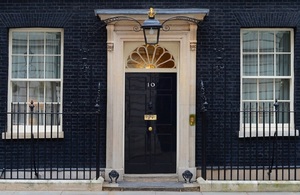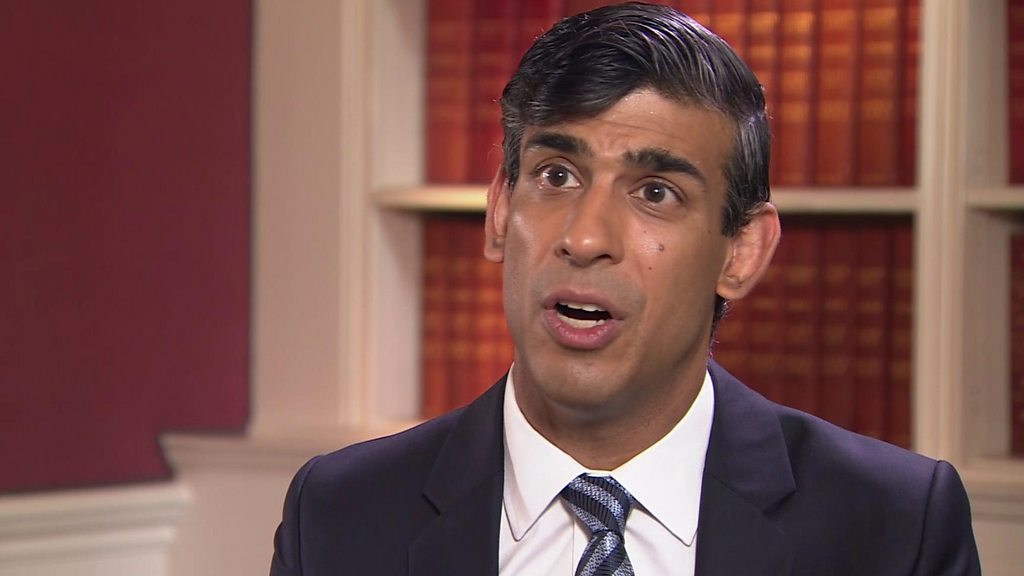Electrify Heat's Ask to the Prime Minister:
Supercharge heat pump installations to help drive away from Russian gas
Ahead of the Spring Statement on 23 March 2022 and the Energy Security Strategy, the UK’s leading energy companies, heat pump manufacturers, trade bodies and energy consumer organisations have issued a joint statement, coordinated by the Electrify Heat campaign, calling on Boris Johnson to use the anticipated Energy Security Strategy to “set out a plan for moving away from gas, including at its heart an ambitious, long-term electrification programme”.
The groups – including E.ON, EDF, Scottish Power and Energy UK, as well as trade bodies representing heat pump manufacturers and consumer interest groups – have joined the call. The statement sets out recommendations including removing legacy costs from electric bills, boosting grant funding for lower income households, providing training opportunities to grow the heat pump workforce, and launching a nationwide consumer awareness and advice drive to support people to heat their homes efficiently.
Juliet Phillips, Head of Policy, Electrify Heat said: “Energy security starts at home – this means supercharging electric heat solutions to get off Russian gas. Currently, over 85% of UK homes are connected to the gas grid, which leaves families heavily exposed to price shocks and volatile international gas markets. The Prime Minister’s forthcoming Energy Security Strategy should contain a long-term vision to accelerate the shift towards clean, electric heat. Industry is primed to support the roll-out of heat pumps and is ready to work with the government to support the effective delivery into homes across the country.”

Energy Security Strategy
Ending the UK’s reliance on volatile international gas markets has never been a greater imperative. A nationwide drive to reduce gas demand through clean, electric heat and energy efficiency upgrades will have a key role to play. In this context, heat pumps will have a central role to play in providing heating, and, with the Boiler Upgrade Scheme planned to launch shortly, there will be direct support available to consumers to install heat pumps.
Through the anticipated Energy Security Strategy, the UK Government has an opportunity to set out a plan for moving away from gas, including at its heart an ambitious, long-term electrification programme. It is important that the strategy not only focuses on expanding domestic low carbon generation supply but also takes the necessary steps to promote a long-term cut in demand for gas in heating our homes.
Electrify Heat encourages the Government to work with industry and delivery partners to support a nationwide drive to accelerate the roll-out of heat pumps and energy efficiency with the following steps:
- Reduce the upward pressure on electricity bills through removing the legacy policy costs: by moving the legacy policy costs to general spending, the Government can help to ease the pressure on energy bills and simultaneously promote lower running costs for heat pumps. This could help to increase sales of heat pumps – and by growing the supply chain, reduce costs over time – as well as contributing towards reducing demand for gas. Legacy policy costs fall disproportionately on electricity rather than gas bills, and the government has already committed to looking into rebalancing policy costs, so now is the time to progress this.
- Make the transition to clean heat an affordable option for all: it is important to focus on ways of ensuring that low income homes, particularly those off the gas grid, are fully supported to benefit from the clean heat transition. In this context, the Government could look at significantly scaling-up existing schemes focused on those at risk of fuel poverty such as the Social Housing Decarbonisation Fund, the Homes Upgrade Grant and the Sustainable Warmth competition schemes – and kicking off the mass market with the Boiler Upgrade Scheme and the Public Sector Decarbonisation Scheme. It is important that any new investment is committed over a sufficiently long time to provide confidence for the supply chain to respond positively and increase deliveries.
- Pave the way for smooth delivery with a focus on training and trust: the UK will struggle to make sufficient progress in reducing its dependence on gas if the supply chain is not ready to deliver the necessary heating upgrades. A focus on affordable and attractive training packages will help to ensure a smooth transition for those currently working on gas boilers and bringing new people into the industry, providing incentives and opportunities for new workers. A long-term funding programme will also help to underpin business confidence that the transition away from fossil fuels towards clean heating will happen, thereby reinforcing steps to upskill the workforce. A green homes drive should be backed up by a public awareness campaign, alongside the provision of independent, tailored and accessible advice to help people make the right decisions to heat their homes efficiently and cleanly.

Quotes from Electrify Heat Members
Brian Tilley, Head of External Affairs, E.ON said: “Ending the UK’s reliance on gas is a huge challenge, but one that also presents a huge opportunity. Retrofitting our homes with better energy efficiency and heat pumps will mean that we are not only using less fossil fuels but simultaneously cutting our bills and carbon emissions, whilst creating jobs and improving health in homes up and down the country. Decisive action now from Government will kickstart our journey to cheaper and more efficient home heating and the Chancellor has the opportunity on the 23 March to do just that. We want Government to address the current imbalance by taking policy costs off electricity bills and moving them into general taxation, boost the number of trained installers by introducing regional skills bootcamps and funnel any additional funding into schemes which we know already work and are delivering, such as ECO.”
Chris Carberry, Smart Solutions Director of Scottish Power said: "Doubling down on decarbonisation is good for long-term national energy security, so we look forward to seeing the Government’s energy supply strategy. As well as turbo-charging investment in renewable generation, we need to accelerate the delivery of both energy efficiency improvements and clean home heating solutions, such as electric heat pumps. These actions will help to reduce our dependence on gas and ease the upward pressure on energy bills."
Charles Wood, Deputy Director, Energy UK said: “With customers facing huge bill rises because of record gas prices, the case for switching to cleaner, cheaper low carbon heating has never been stronger – and we urge the Government to get behind it.”
Philippe Commaret, Managing Director for Customers at EDF said: “It is right that the Government is looking at how we secure our energy security using more nuclear and renewables, which over time will wean us off high carbon gas in favour of low carbon electricity. Next, we must tackle the UK’s inefficient housing stock. Insulation now offers even greater savings against rising bills and we have this summer to get homes winter ready before the heating goes back on. This, alongside the right policies and incentives to accelerate the switch to low carbon heat, will help to insulate Britain against rising prices.”
Bean Beanland, Director for Growth & External Affairs, Heat Pump Federation said: “The current tragedy unfolding in Ukraine and the realisation that fossil fuels now represent a national security risk provides a prime opportunity for government to implement policies to break the cycle of addition, tackle the scourge of poor quality housing and improve air quality by accelerating the drive for increased zero carbon electricity generation and the deployment of heat pump technologies at a rate that could see the UK exceed the current targets established in the Ten Point Plan and by the Committee on Climate Change. Zero carbon generation technologies now provide the lowest cost electricity. Market reform could see this passed on to those who are being pushed into fuel poverty, with massive associated benefits for the UK as a whole.”
Stew Horne, Head of Policy, Energy Saving Trust said: “Meeting the challenge of reaching net zero by 2050 and reducing the UK’s reliance on gas will mean changes to how many of us heat our homes. A key part of this will be switching from gas boilers to heat pumps. In order for this transition to happen at the pace and scale we need, the UK government must use the upcoming Energy Security Strategy to set out an ambitious, long-term plan for driving up the installation of heat pumps, which in turn will reduce demand for gas imports.
People need to understand the importance of decarbonising their homes and the options that are available to them, so it’s crucial that an awareness campaign and the availability of a trusted advice and support service are central to these plans. As energy bills continue to rise it is more important than ever that households are supported to lower their bills and move away from fossil fuels by installing low carbon heating systems and improving the energy efficiency of their homes.”
Andrew Sissons, Deputy Director of sustainability at Nesta said: “Heat pumps are already more popular than most people assume. Our research found that up to a quarter of homeowners are willing to pay more than £10,000 for a heat pump to reduce their carbon emissions, while up to a third are willing to pay more than £6,000. Heat pumps could also get a lot cheaper in the coming years, especially as we try to shift away from the volatile international gas market, in which Russia produces a tenth of all global supply. Our recent analysis found that heat pumps would be cheaper over their lifetime with a few changes, most notably if the government shifted levies from electricity to gas.”
Laura Bishop, Chair, Ground Source Heat Pump Association said: “We urgently need to reduce our dependence on gas for heating, both to increase national security and to save on carbon emissions. Ground source heat pumps offer the most efficient route to net zero and can also combine strongly with PV technology, solar thermal and time-of-use tariffs.”
Edward Thompson, Director, ICAX said: “The time is ripe for the Government to remove the illogical “environmental levies” on electricity that are inhibiting consumers and businesses from adopting the natural route to combustion-free heating. We need to be in touch with our natural environment from which we can draw heat instead of contributing CO2 and NO2 to it.”
Notes:
- 2022 analysis from the Regulatory Assistance Project has shown that installing an efficient heat pump system in a typical UK household can save around 27% of the heating bill compared to running a gas boiler – after the energy price cap rises in April 2022.
- Recent polling from NESTA and the UK Government’s Behavioural Insights Team has shown that 25% of homeowners would be willing to pay the full cost of a whole home heat pump installation (around £10,000-£12,000) while roughly one in three homeowners would be willing to pay a bit extra if it meant reducing emissions. For the rest, cost remains the biggest barrier to heat pump adoption, followed by information. The study was based on 1,081 homeowners in England and Wales.
- In 2021, The Electrification of Heat demonstration project, funded by BEIS and the Energy Systems Catapult, found, based on a study of 742 different installations around the country, that ‘there is no property type or architectural era that is unsuitable for a heat pump.'
- Modern air-to-water heat pumps will heat water to over 60 degrees and can work efficiently at an outside temperature as low as -25 degrees. The average air source heat pump is three times more efficient even than a top-rated gas boiler in its use of energy to heat a home to the same temperature.
For further information please contact: Juliet Phillips on juliet@electrifyheat.uk or Edward Robinson on edward@electrifyheat.uk
The Background to the Electrify Heat Campaign
The background to the Electify Heat Campaign is that:
- Nearly half the energy used in the UK is for heating.
- More than half the fossil gas used is for heating – compared to 34% for generating electricity.
- The concentration of CO2 in the atmosphere remained below 280 parts per million (ppm) for 800 thousand years until the start of the Industrial Revolution in the eighteenth century.
- The concentration has risen from 280 ppm in 1780 up to 417 ppm in 2021.
- Every thinking person (except Nigel Lawson) accepts that we must control carbon emissions, or face unknown consequences in the decades ahead.
- If we are aiming for a low carbon economy we need to stop combustion of gas, oil, coal and biomass.
- The clean alternative is to use heat pumps instead of burning for heating
See Low Carbon Heating See Low Carbon Cooling See Ground Source Energy
















